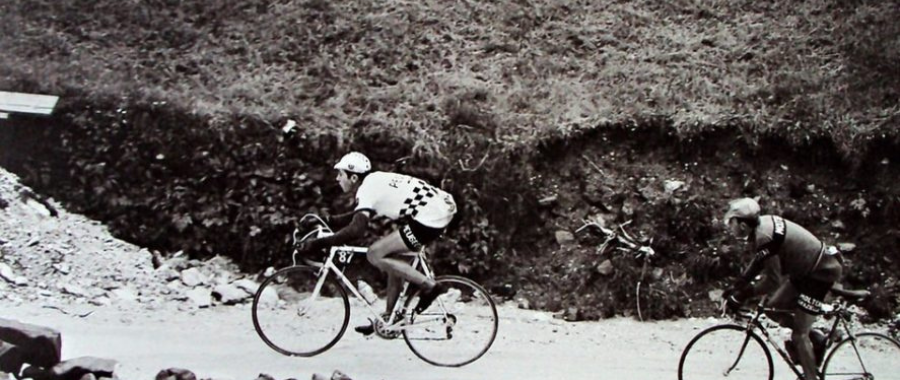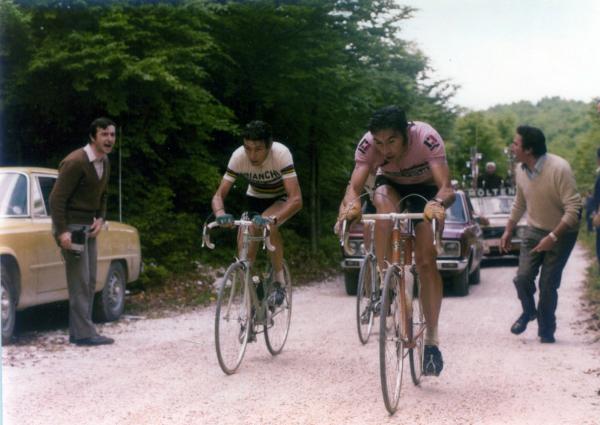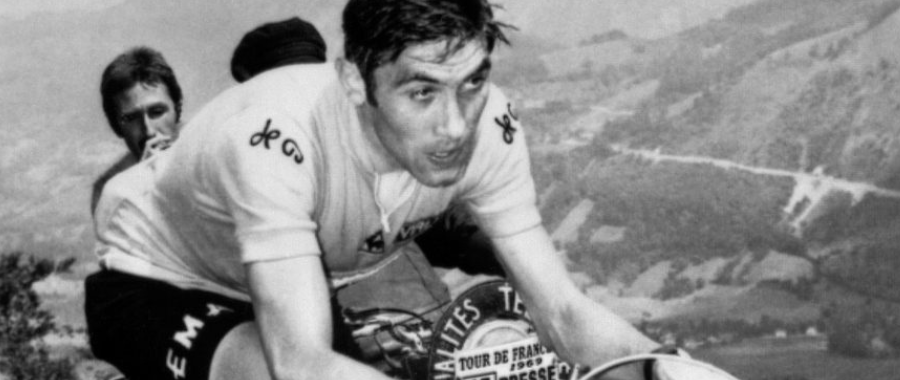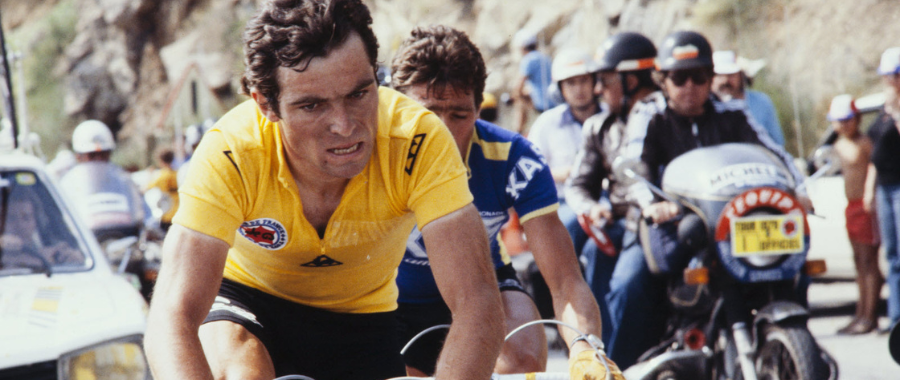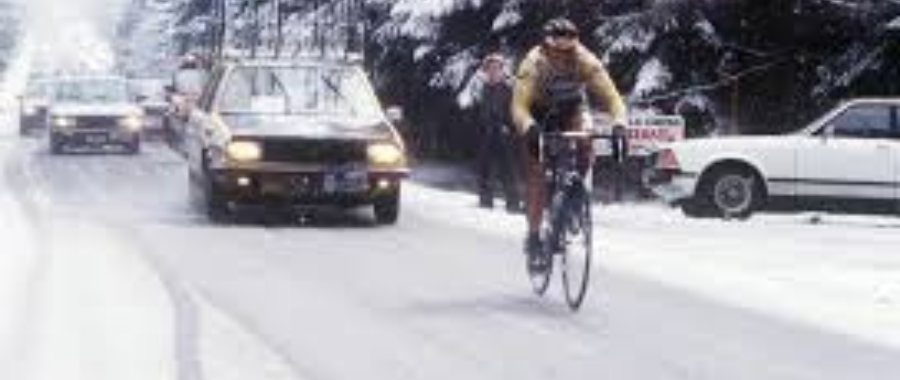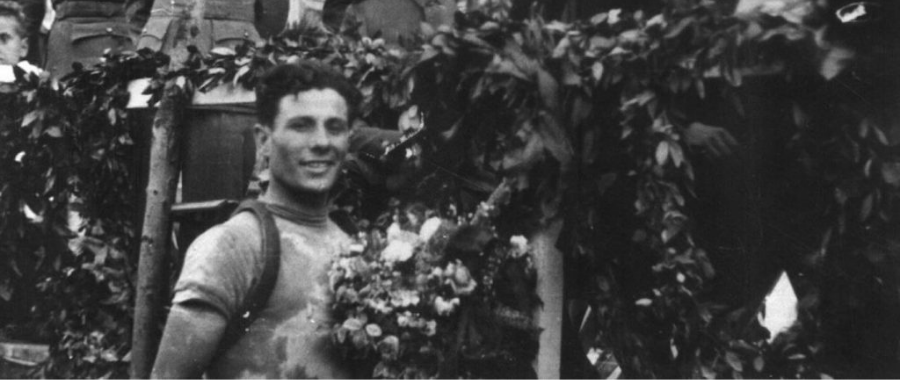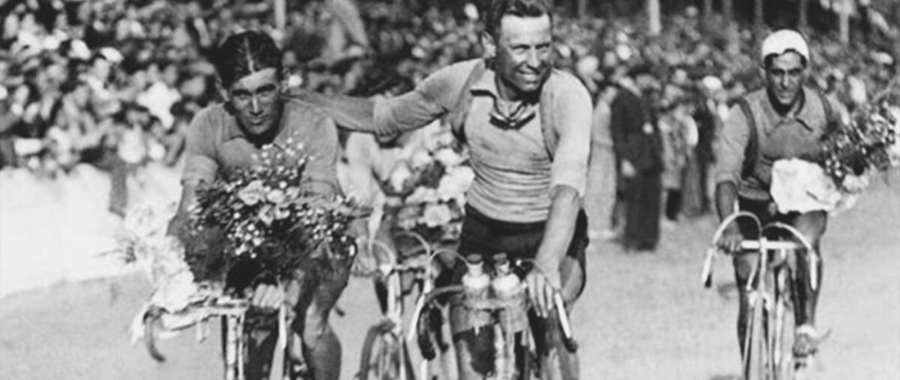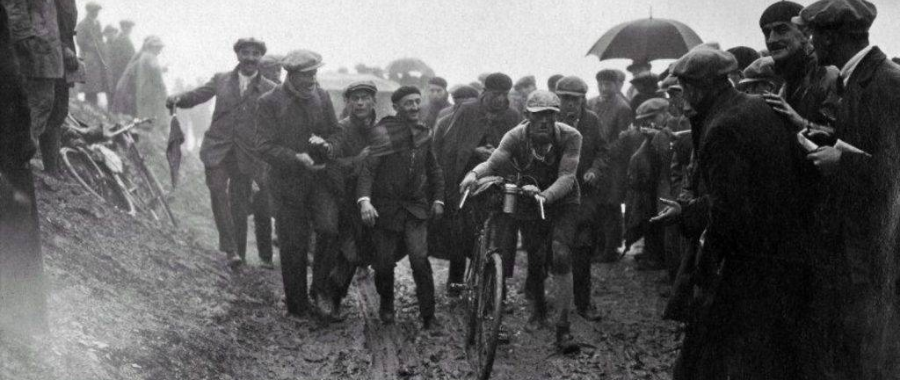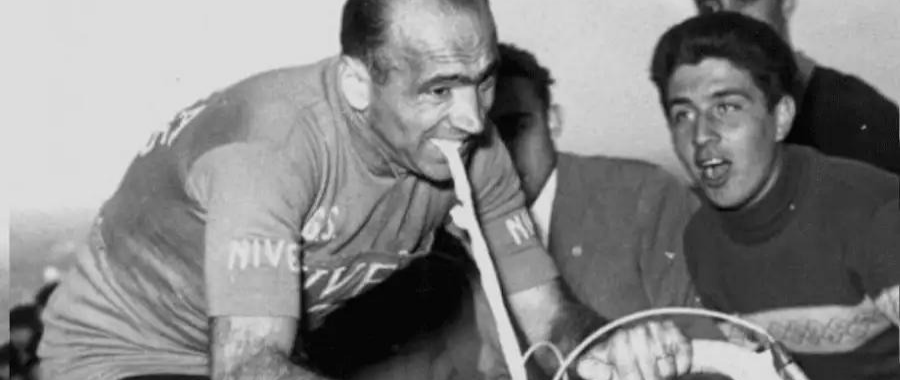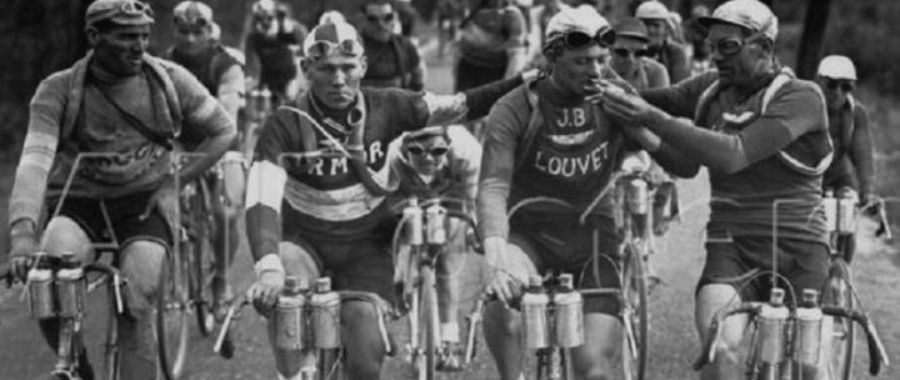Eddy Merckx, arguably the greatest cyclist ever, participated in Vuelta a Espana only once during his extraordinary successful career. The significance of this singular achievement is not just that Merckx became the first cyclist to achieve a Vuelta-Giro double, but also that he joined the elite ranks of Jacques Anquetil and Felice Gimondi as only the third rider to win all three grand tours at least once.
Sometimes Vuelta a Espana is seen as the poor stepsibling of the two other big three-week events. The first edition of the race was organized in 1935, decades after the creation of both Tour de France (1903) and Giro d'Italia (1909). Although some editions were held during World War II, they had very little influence on the international professional racing for obvious reasons. During the 1940s and 1950s Vuelta a Espana was fighting for survival, there was no race for a decade.
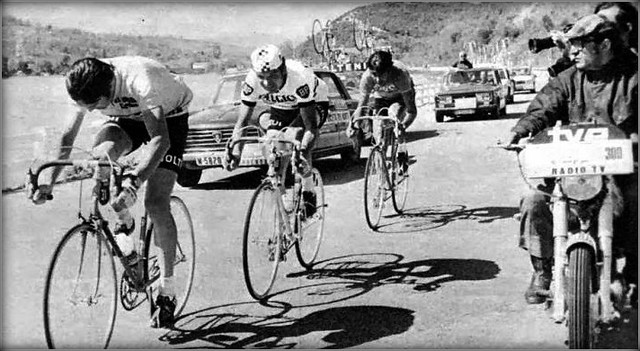
Unfortunately, its place in the international racing calendar, springtime, few weeks before Giro d'Italia, did not help either to create a big significant event. No wonder that some of the greatest legends, like Gino Bartali never rode Vuelta a Espana. Many of them participated only once in the event. Fausto Coppi rode Vuelta only in his last season, in 1959, but he did not finished it. Also
Eddy Merckx attempted only once to succeed at Vuelta a Espana.
Of course, he managed to win it.
In order to achieve this, he had to skip one of the other two grand tours of the season, and he picked Tour de France.
It might have been a difficult decision for Merckx. Since 1969, his first appearance, he won Tour de France four times in a row. (He also won already three Giro d'Italia editions since 1968.) At that point, only Jacques Anquetil managed to win 5 editioms of Tour de France, but not in a row. (This happened only to Miguel Indurain in the first half of the 1990s.)
Winning Tour de France for the fifth time in five consecutive years would have been also an extraordinary achievement. But Merckx was chasing glory rather on the Iberian Peninsula that year.
The 28th Vuelta a Espana was held between 26 April and 15 May 1973. The race covered 3,017 kilometers over 17 stages, including several time trials, also mountain stages with very steep ascents, as usual. Merckx won amtotal of six stages. In a typical Cannibal style,
Merckx took the lead on his very first Vuelta a Espana stage already.
(The same happened in 1969, when Merckx took the yellow jersey on his very first day by winning the opening time trial of the Tour de France.)
But he did not manage a "from dawn to sunset" victory. Between the stages 2 and 11 there were other leaders of the general classification too, first Gerben Karstens, then José Pesarrodona. Merckx claimed the leader jersey for the second time on the 11th stage. (Please note, because of the several A and B half-stages, regarded sometimes as different stages, the numeration in different sources can be contradictive and a bit confusing. )
During those years, The peloton of Vuelta a Espana included only one or two big stars. The winner of the race had rarely serious rivals. 1973 was a bit differnt year in that sense too. Merckx had to compete with Luis Ocaña (winner of Vuelta a Espana 1970, and future Tour de France winner in 1973), and Bernard Thévenet (future 2-time Tour de France winner from 1975 and 1977, who also rode Vuelta a Espana for only one time.)
Merckx with six stages victories secured the lead till the end of the race and won Vuelta a Espana for the first and only time.
Eddy Merckx's only Vuelta a Espana victory was part of an incredible record. Because he won both Giro and Tour in the previous season, also he managed to achieved the Vuelta-Giro double in 1973,
he won four grand tours in a row.
READ MORE ABOUT EDDY MERCKX
Eddy Merckx’s victory on Blockhaus (Giro d’Italia 1967)
Every road cycling legend, every great champion, has that first unforgettable, career-defining moment—the moment when they surpass all… Read More »Eddy Merckx’s victory on Blockhaus (Giro d’Italia 1967)
A battle of seconds (Giro d’Italia 1974)
In the long and storied history of the Giro d’Italia, few editions have left as lasting an impression… Read More »A battle of seconds (Giro d’Italia 1974)
17 iconic moments from the career of Eddy Merckx
Eddy Merckx isn’t just a name in cycling—he’s a symbol of absolute dominance, relentless ambition, and unmatched versatility.… Read More »17 iconic moments from the career of Eddy Merckx
READ MORE ABOUT OTHER CYCLIJG LEGENDS
When the Badger backed down: Bernard Hinault’s controversial withdrawal (Tour de France1980)
In the pantheon of cycling legends, few names carry the ferocious weight of Bernard Hinault. Known as “Le… Read More »When the Badger backed down: Bernard Hinault’s controversial withdrawal (Tour de France1980)
Gino Bartali’s five most memorable Tour de France stage wins
Gino Bartali is remembered not only as one of the greatest climbers in cycling history, but also as… Read More »Gino Bartali’s five most memorable Tour de France stage wins
Bernard Hinault’s 1980: a year of triumph, turmoil, and turning points
In the brutal, beautiful world of professional cycling, few names evoke the same sense of awe, fear, and… Read More »Bernard Hinault’s 1980: a year of triumph, turmoil, and turning points
MORE VINTAGE VUELTA A ESPANA STORIES
The cyclists who won 12 of the 21 stages of Vuelta a España
Vuelta a Espana was not organized for several years after the first two editions in 1935 and 1936.… Read More »The cyclists who won 12 of the 21 stages of Vuelta a España
An astonishing record : 12 of 21 stages won by the same cyclist at Vuelta a Espana
Vuelta a Espana was not organized for several years after the first two editions in 1935 and 1936.… Read More »An astonishing record : 12 of 21 stages won by the same cyclist at Vuelta a Espana
Gustaaf Deloor winner of Vuelta a Espana 1935 and 1936
Vuelta Ciclista a España (or just La Vuelta), the third three-week race of the road cycling season is… Read More »Gustaaf Deloor winner of Vuelta a Espana 1935 and 1936
OTHER POPULAR VINTAGE ROAD CYCLING STORIES
The toughest Tour de France stage ever
The 10th stage of Tour de France 1926 is often dubbed as the toughest stage ever in the… Read More »The toughest Tour de France stage ever
Fiorenzo Magni’s heroic efforts after his crash at Giro d’Italia 1956
One of the most iconic vintage road cycling images features Fiorenzo Magni grimacing in pain on a gradually… Read More »Fiorenzo Magni’s heroic efforts after his crash at Giro d’Italia 1956
Smoking cyclists (Tour de France 1927)
The smoking cyclists of Tour de France 1927 is one of the most famous vintage cycling images from… Read More »Smoking cyclists (Tour de France 1927)
